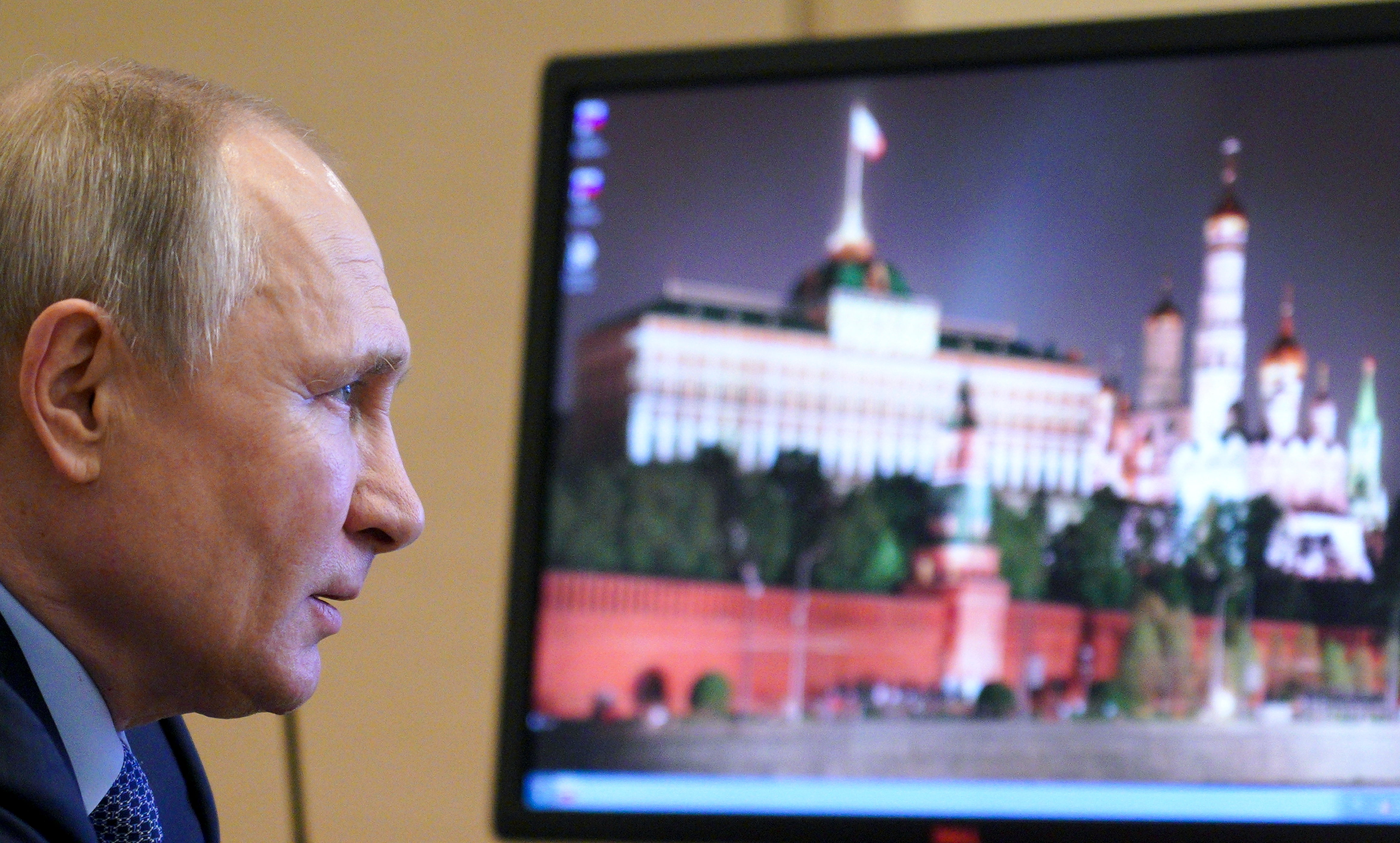Leaders of Russia, France, Germany discuss global crises
The Kremlin says the leaders of Russia, France and Germany had a call to discuss coronavirus vaccines and a slew of international crises, including the situation in eastern Ukraine, Libya, Syria and the Iranian nuclear standoff among other issues

The leaders of Russia France and Germany met by conference call Tuesday and discussed coronavirus vaccines, the Iranian nuclear standoff and the conflicts in eastern Ukraine, Libya and Syria, the Kremlin said.
The Kremlin said President Vladimir Putin also responded to questions about jailed Russian opposition leader Alexei Navalny raised by German Chancellor Angela Merkel and French President Emmanuel Macron in their “frank and business-like” video call.
The Kremlin noted in its readout that the three leaders talked about prospects for the registration of the Russia-designed Sputnik V vaccines in the European Union and the possibility of its shipments and joint production in EU nations.
The European Medicines Agency started a rolling review of Sputnik V earlier this month. Russia has been actively marketing Sputnik V abroad despite a slow pace of its rollout at home, in what some in the EU saw as an attempt to score geopolitical points.
While discussing the situation in eastern Ukraine, the three leaders emphasized that a 2015 peace deal brokered by France and Germany has no alternative, the Kremlin said.
It noted that Putin emphasized the need for Ukraine to honor its obligations to provide special status to the rebel regions as stipulated in the 2015 deal. Ukraine has pushed for amending the agreement, but Russia has staunchly rejected the push.
The fighting between Russia-backed separatists and government forces in eastern Ukraine erupted after Russia's 2014 annexation of Ukraine's Crimea and has left more than 14,000 dead.
The Kremlin's readout said the three leaders voiced hope that Libya’s transitional authorities will help advance an inclusive political process in the war-stricken country.
All three also reiterated support for the Iranian nuclear deal and touched on the situation in Syria, according to the Kremlin.
Putin said Russia was open for normalization of ties between Russia and the European Union, which have been strained recently over the poisoning and the jailing of Navalny. Navalny, Putin’s most outspoken opponent, was arrested in January upon his return from Germany, where he spent five months recovering from a nerve-agent poisoning that he blames on the Kremlin. Russian authorities have rejected the accusation.
Last month, Navalny was sentenced to 2 1/2 years in prison for violating the terms of his probation while convalescing in Germany. He rejected the charges as the Kremlin's political vendetta.
Russian officials have rejected demands from the United States and the European Union to free Navalny and stop the crackdown on his supporters.
During Tuesday's call, Putin responded to questions about Navalny posed by Merkel and Macron and emphasized Moscow's readiness to “restore normal unpoliticized interaction with the EU if it shows interest in that,” the Kremlin said.